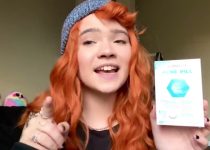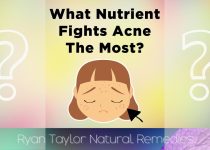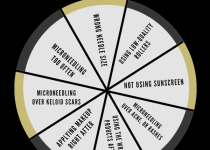My Acne Journey: From Embarrassment To Confidence
Acne, the bane of many a teenager's existence, had plagued me since the tender age of 13. The relentless pimples and unsightly blemishes left me feeling self-conscious and ashamed. I tried countless over-the-counter and prescription treatments, but nothing seemed to make a lasting difference. My skin was a constant source of embarrassment, casting a shadow over my teenage years.
**Understanding Acne**
Acne is a common skin condition that affects people of all ages, but it is most prevalent during adolescence. It occurs when the sebaceous glands, which produce oil to lubricate the skin, become overactive and clogged with dead skin cells and bacteria. This can lead to the formation of pimples, blackheads, and other blemishes.
**Factors Contributing to Acne**
There are several factors that can contribute to acne, including:
* **Hormones:** Androgens, hormones that increase during puberty, stimulate the production of sebum.
* **Bacteria:** The bacteria Propionibacterium acnes (P. acnes) feeds on the sebum and produces waste products that irritate the skin.
* **Genetics:** Acne tends to run in families, suggesting that there may be a genetic predisposition to the condition.
* **Diet:** Some studies have linked a high-glycemic index diet to increased acne severity.
* **Stress:** While stress does not directly cause acne, it can exacerbate existing breakouts.
**Conventional Treatment Options**
Traditional acne treatments typically involve:
* **Topical medications:** These contain ingredients such as benzoyl peroxide, salicylic acid, or retinoids, which help kill bacteria, reduce inflammation, and unclog pores.
* **Oral medications:** Antibiotics, such as doxycycline or minocycline, can help reduce the number of bacteria on the skin.
* **Hormonal therapy:** For women with hormonal acne, birth control pills or other hormonal treatments can help regulate hormone levels.
* **Isotretinoin:** This powerful medication is used for severe acne that has not responded to other treatments.
**Alternative and Holistic Approaches**
In addition to conventional treatments, there are a number of alternative and holistic approaches that may help manage acne:
* **Tea tree oil:** This essential oil has antibacterial and anti-inflammatory properties that can help reduce breakouts.
* **Zinc:** Zinc supplements have been shown to reduce acne severity in some individuals.
* **Green tea extract:** Green tea contains antioxidants that may help protect the skin from damage and reduce inflammation.
* **Diet modifications:** Reducing the intake of sugary and processed foods may help improve acne.
* **Stress management:** Engaging in relaxation techniques, such as yoga or meditation, can help reduce stress levels and potentially improve acne.
**My Personal Experience**
After years of struggling with acne, I finally found a combination of treatments that worked for me. I used a topical retinoid cream, oral antibiotics, and dietary changes to manage my breakouts. I also incorporated tea tree oil into my skincare routine and practiced stress-reducing techniques.
Over time, my acne gradually improved. The pimples became less frequent and less severe, and my skin texture became smoother. While I still get occasional breakouts, they are much more manageable and do not have the same devastating impact on my self-esteem as they once did.
**Conclusion**
Acne is a common and challenging condition, but it can be managed with the right treatment plan. Whether you choose conventional, alternative, or a combination of approaches, it is important to work with a healthcare professional to develop a personalized treatment regimen that meets your specific needs. With patience and perseverance, you can overcome acne and regain your confidence.


